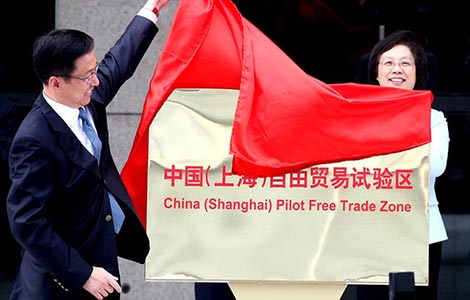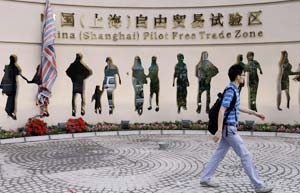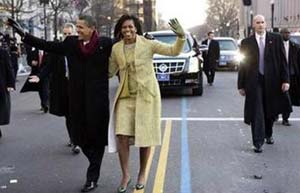

EGGS: Never put them all in the same basket
The CIC is also planning to expand its investments into West and East Africa.
"The fund is in talks with government officials from countries in these areas for railway, port and highway investment projects, especially for the cross-border highways," Gao Xiqing, CIC's vice-chairman and general manager, said in March.
Analysts feel the signals exhibited by the sovereign wealth fund in recent years shows it is keener on energy resources and fixed-asset investment projects overseas, besides buying financial products, such as treasury bonds and shares. On the other hand, it has also spurred criticism that Chinese investment could be a potential threat to local development.
However, CIC officials dismiss such charges. "The CIC has always identified itself as a ‘pure' financial investor," the unnamed fund official says. "Although it is the biggest manager of the country's foreign exchange reserves, it is more of a strategic investor."
Wu Weihai, a researcher at the research institute under the Ministry of Industry and Information Technology, says wealth funds usually base their global investments on two factors. While the first approach focuses on buying equity in companies and industries to gain dividend and stock premium, the other is concentrated on rights purchases in selected companies to gain management control. "It is obvious that the CIC investment strategy falls into the first category," Wu says.
The next step for the CIC should be to invest in overseas industries that have advanced technologies or management capabilities, because it would help accelerate domestic industrial upgrading and facilitate economic rebalancing, Wu says.
"The company's goal is pursuing long-term returns by customizing investment strategies based on different projects in different countries," CIC vice-chairman Gao says. "The investment theme is not for mergers and acquisitions, or to control any overseas company. We don't want to be seen as a destroyer by any country."
According to the company's 2012 annual report, by the end of last year, the company's total assets stood at $575 billion, compared with $482 billion a year earlier. About 32 percent of its overseas investment were in public equities, 32.4 percent in long-term investments and 19.l percent in fixed-income securities.
"We have increased purchases of public equities and steadily boosted long-term investment in infrastructure construction, energy and mineral resources, and real estate," the unnamed official says.
 Shanghai inaugurates Free Trade Zone
Shanghai inaugurates Free Trade Zone
 New BMW 5 Li hits Chinese market
New BMW 5 Li hits Chinese market
 China to officially launch Shanghai FTZ on Sept 29
China to officially launch Shanghai FTZ on Sept 29
 Time to get smart
Time to get smart
 Leaders' car picks around the world
Leaders' car picks around the world
 Shining models at 15th Aviation Expo China
Shining models at 15th Aviation Expo China
 2013 Beijing Intl Jewelry Expo kicks off
2013 Beijing Intl Jewelry Expo kicks off
 Microsoft revamps Surface to challenge Apple
Microsoft revamps Surface to challenge Apple